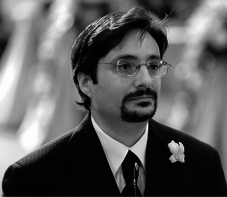SPECIAL SESSION #15
Complex Systems Operational Availability: Measurements, Methodologies and Requirements
ORGANIZED BY
Fabio Leccese
Roma Tre University, Italy
SPECIAL SESSION DESCRIPTION
Budgets for Complex Systems, such as in Aerospace and Defense, are shrinking and human resources are becoming critical, but operational needs to face new threats and operational availability requirements of these Systems are increasing.
This requires a new approach - based on operational availability requirements - for the design of the primary and associated support system, to achieve the best balance between Operative Availability and Life Cycle Costs. Since that the performances of the systems are to be maintained during the in-service phase, the key elements to consider is the integration between predictions derived from logistic databases, prognostics and field feedback measurements.
The goal of this Special Session is show the last researches and in particular the new methods, models and integrated design processes in this field.




